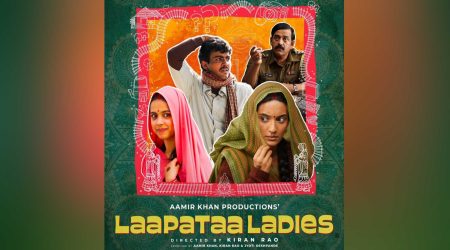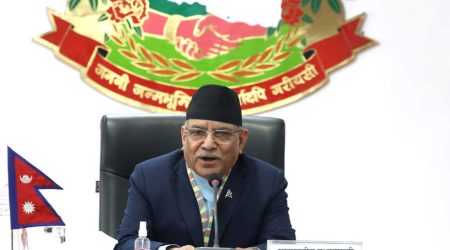By Bal Ram Singh, PhD
It is believed Sita as a Kulavadhu – the one keeps the Kula traditions intact, could not refuse the alms to Ravana when he came to her pretending as a brahmin. Kulavadhu is an honored position for a daughter-in-law that brings high regards for them.
Actually, the word wedding is derived from Vadhu, which means tying the knot, join, vandhan, or vaddhata (like in vachan vaddhata). From ancient culture to modern culture, the marriage has been a family affair. During medieval times also, kings, even the Mughal ones, made marriage as convenient way to tie political relations.
Kula means total, from the beginning to end, implying she is the torch bearer and insurer of the lineage of not just genes, but perhaps more of the tradition, culture, and principles. In fact, Ram himself was an ardent follower of this tradition, and practiced it perfectly at every occasion where the issue arose.
It is through Kulavadhus the family traditions are passed along to generations, something not quite being practiced in today’s liberated society. One example that came to light after Indian government had introduced Section 498 (A) in the Indian Penal Code in 1983 to show a unique gender asymmetry shown to the wife or daughter-in-law through which immediate arrest was provisioned if the married woman made an allegation of cruelty by husband and/or the members of his family.
However, this provision was so badly misused by the modern daughters-in-law that the government in 2009 had to introduce amendments to this provision protecting the husbands and family members. These conditions of imported sense of justice or rights introduced through law enforcement practices are not healthy for a society anywhere let alone India, which claims a culture and philosophy compatible for a harmonious and caring society.
This is not to say that there should not be progress and improvement, or that there were no disputes between husband wife or within the family in ancient times. In fact, there was terse exchange of words between Ram and Sita, as referred in the Ayodhya-kand of Ramcharitmanas at the time of Ram leaving for the forest, who strongly advised Sita to stay back serving the in-laws. Ram even tried to scare Sita, interestingly, about the possibility of being stolen by dark dweller demons.
ब्याल कराल बिहग बन घोरा। निसिचर निकर नारि नर चोरा॥
डरपहिं धीर गहन सुधि आएँ। मृगलोचनि तुम्ह भीरु सुभाएँ॥62.2॥
byala karala bihaga bana ghora, nisicara nikara nari nara cora।
darapahin dhira gahana sudhi ae, magalocani tumha bhiru subhae।। (Ayodhyakand, 62 .2)
There are terrible serpents and fierce wild birds and
multitudes of demons who steal both man and woman. The boldest shudder at the very
thought of the forest; while you, O fawn-eyed lady, are timid by nature.
But, Sita put up a tenacious argument in a debate with Ram, which goes in 16 chaupais and 4 dohas of Ayodhyakand, countering Ram’s arguments which spanned only in 12 chaupais and 3 dohas, indicating Sita was more articulate and effective in her arguments as she ultimately prevailed.
को प्रभु सँग मोहि चितवनिहारा। सिंघबधुहि जिमि ससक सिआरा॥
मैं सुकुमारि नाथ बन जोगू। तुम्हहि उचित तप मो कहुँ भोगू॥4॥
ko prabhu sanga mohi citavanihara, singhabadhuhi jimi sasaka siara.
main sukumari natha bana jogu, tumhahi ucita tapa mo kahu ° bhogu.(Ayodhyakand, 66.4.
Who can dare look at me, when I am by the side of my
lord, any more than a hare or jackal would regard a lioness? How true it is that I am
delicate of body while my lord is fit to bear the hardships of a forest life, that it behoves
you to undergo penance while it is worth while for me to loll in luxuries!!
Actually, Sita argued everything very logically and politely, but quite firmly, even while declaring herself a lioness. This maybe a preface to examine, understand, and explain some other texts such as Manusmriti verses which get slammed for presenting unconvincing or even derogatory remarks on the treatment of women in Indian texts.
For example:
पिता रक्षति कौमारे भर्ता रक्षति यौवने ।
रक्षन्ति स्थविरे पुत्रा न स्त्री स्वातन्त्र्यमर्हति ॥ ३ ॥
pitā rakṣati kaumāre bhartā rakṣati yauvane |
rakṣanti sthavire putrā na strī svātantryamarhati || 9.3 ||
The father guards her during childhood, the husband guards her in youth, the sons guard her in old age; the woman never earns independence.
One can debate the issue of earning independence, but here in case of Sita as a kulavadhu it is clear she argues and wins her arguments to prevail over Ram to get her way. I recall a conversation I heard between modern Hindu mother and daughter, where the daughter said that Sita wanted to go with Ram because she was young and wanted to have fun outing in the forest. And, the mother was no less up to it when she said, yeah, they had good honeymoon that way!

Balram Singh is a Professor and the President of the Institute of Advanced Sciences, Dartmouth, Massachusetts, researching Ayurveda, Yoga, Vedic education, and Vedic social and political traditions. He is also adjunct faculty at Jawaharlal Nehru University (JNU), New Delhi.










